
Home |
Up |
Next |
Prev |
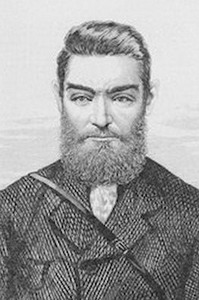
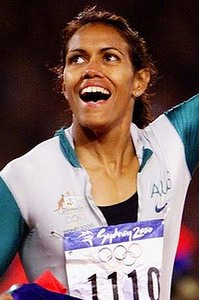
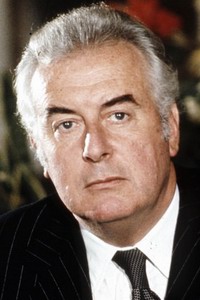
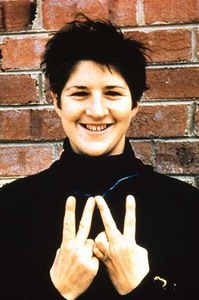
Famous exemplars of the Australian character: Ned Kelly, Cathy Freeman, Gough Whitlam & Dawn Fraser.
Introduction
Australians are traditionally a little different from other nationalities. We have various things in common with others but no other nation has the exact same collection of attributes that we do. Of course there is great variation within Australia with respect to personal characteristics so it will never be possible to delineate the "Australian Character" in a way that will fit every Australian. What I am attempting to do here is to capture the most common characteristics of Australian people, and particularly those characteristics that stamp us as a unique people on this planet.
National characteristics can change over time but who we are today is rooted in the past, so I will be exploring the Australian character through the past 200 years. Australians in the modern world of multiculturalism, ubiquitous internet, global entertainment and global shopping may not be as tightly Australian as we were 60 years ago but Australian we are and it behoves us to remember who we were and what makes us special.
The Traditional Australian Character
Traditionally, a true blue Australian has the following attributes:
Toughness
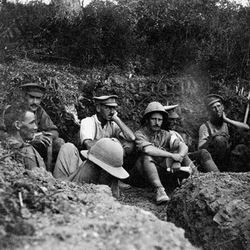
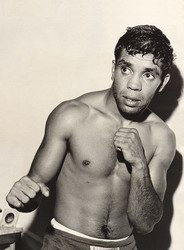
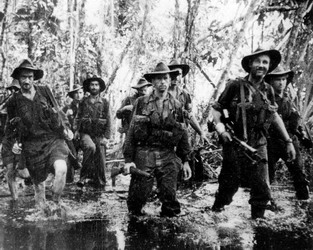
ANZACs at Gallipoli, Lionel Rose, world bantamweight champion 1968, ANZACs in New Guinea.
Australians are tough! We can take the pain and when required we can also dish it out. We don't go looking for a fight but we don't shy away from one either. When we do fight we punch above our weight and amaze our opponents who can't understand how one people can be so hard.
Look at our military record:
Numerous Australians volunteered and served with distinction in the Boer War in 1899. The acclaimed film Breaker Morant tells some of the story.
In WW1 in 1914 large numbers of Australians were keen to fight and answered the call of the Australian Government. They served with great distinction in Turkey and France and other places and
there they created the immortal ANZAC legend of mateship, courage, competence and resilience. Watch the film Gallipoli or go to Villers-Bretonneux and walk around the Australian National Memorial there to get some idea of what our ancestors accomplished in those days.
In WW2 in 1939 another generation of Australians answered the call and they continued the ANZAC legend, fighting in Europe, Africa and Asia against all of the Axis powers. They won the title "Rats of Tobruk" from the Germans and stopped the Japanese at Kokoda in New Guinea. The Japanese were a truly formidable enemy and they had a number of successes against us before this. They took thousands of Australian soldiers prisoner and subjected them to brutal and inhumane treatment at Changi and on the Burma railroad. There once again, Australians showed how tough they were and many survived the hell on earth that the Japanese meted out to them.
During the Vietnam War the Australian Government introduced conscription to force our young men to fight in a war that had little relevance to us. Despite the fact that many of them didn't want to be there our soldiers fought with the tenacity expected of the ANZACs. At the battle of Long Tan 108 diggers with artillery support held off a determined attack by 1,500 Viet Cong soldiers. Respect that!
Self-reliance
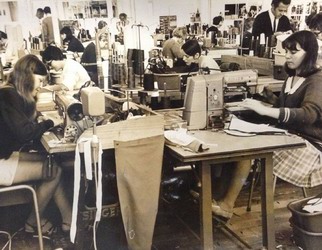
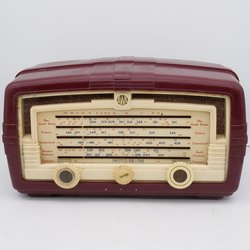

Fletcher Jones clothing factory, AWA valve radio, Holden car factory.
In the days before aeroplanes Australia was completely isolated from the rest of the world, especially the rest of the civilised world with slow ship transport the only way to import/export or travel. In those days we had to make do with what we had and if we didn't have it we had to make it ourselves. This was doubly true in the remote towns that had little communication with the big cities of Melbourne and Sydney.
People often grew their own vegies, often kept chooks and often hunted rabbits and fished for food. We didn't spit the dummy and give up if we didn't have a cricket bat or a football: we MADE one. If we didn't have a teacher we taught ourselves. If there was no doctor someone would step up and do the best they could.
For most of the 20th century Australian manufacturing was comprehensive and of good quality. We made our own radios, TVs, cars, trucks, industrial machinery, clothing, manchester, cloth, yarn, cutlery etc. It was expected that we could do whatever any other country could do and our society was geared to achieve that.
Inventiveness
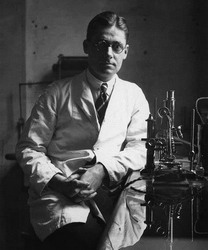
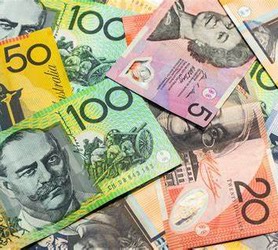

Howard Florey, the man behind penicillin. Australian plastic money. WiFi, first developed in 1992 by researchers from the CSIRO.
When you look at Australia today you don't see the enormous computer and internet innovation that you see in Silicon Valley in the USA or in the electronics or optics industries in Japan but Australians are inventive by their nature and we have invented many things that have changed the world.
Believe it or not we came up with: penicillin, polymer bank notes, electric drills, cochlear implants, ultrasound scanners, Google Maps, the stump-jump plough, the winged keel, WiFi technology, permanent-crease clothing, black box flight recorders, refrigerators, electronic pacemakers, Hills hoists, Gardasil and Cervarix cancer vaccines, inflatable wine casks, spray-on skin, surf skis, the old paper & cardboard notebook, the scramjet, the kangaroo crane, mechanical shearing clippers and many others.
It is a mistake to focus on our toughness, friendliness and resilience and to think that that is all we are, for we are also well endowed with brains and our inventions demonstrate that. Barry Jones: the quiz champion, writer and MP was well aware of our intellectual achievements and liked to refer to Australia as "The Clever Country". Sadly, the governments from his time on have not taken him seriously, preferring to concentrate on money. Nevertheless Australians continue to invent and develop, often without any assistance.
Artistic
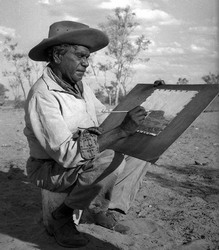
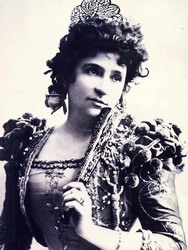
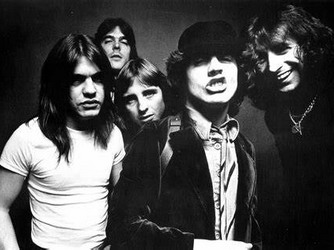
Albert Namatjira, Nellie Melba, AC/DC.
Of course, not all Australians are blessed with artistic talent but there are many of us that are and we are a culturally creative country, producing many great artists and works of art in all disciplines:
In rock music the world tends to think all the greats are from the UK or the USA but we have had numerous internationally successful bands and singers including AC/DC, the Little River Band, the Seekers, Olivia Newton-John and John Farnham as well as great national acts like Cold Chisel, The Angels, Midnight Oil, Skyhooks, Sherbet etc.
In drama we have had many internationally famous stars including Cate Blanchett, Hugh Jackman, Paul Hogan, Mel Gibson, Naomi Watts, Guy Pearce etc.
In dance we had the famous Robert Helpman and Graeme Murphy.
In classical music we have had such luminaries as Joan Sutherland, Nellie Melba, Barry Tuckwell, John Williams and Percy Grainger.
In painting we have greats like Arthur Streeton, Fred McCubbin, Sidney Nolan, Tom Roberts, Albert Namatjira, Arthur Boyd and John Brack.
In poetry we have greats such as: Banjo Patterson, Henry Lawson, C. J. Dennis, Judith Wright, Les Murray and Dorothea Mackellar.
In literature we have famous writers such as: Patrick White (Nobel Prize winner), Marcus Clarke (For the Term of His Natural Life), Miles Franklin (My Brilliant Career), Henry Handel Richardson (The Fortunes of Richard Mahony), Pam Travers (Mary Poppins), Peter Carey (Illywhacker), Colleen McCullough (The Thorn Birds), Nevil Shute (On The Beach), Morris West (The Shoes of the Fisherman), Germaine Greer (The Female Eunuch), Barry Humphries (Barry McKenzie) and Clive James (various).
We are a creative people and we do not need to feel any cultural cringe because we have done it all!
A Belief In Equality
Australia's early white settlers were mostly from the lower classes of Great Britain and Ireland. They hated the way that English aristocracy lorded their privilege and power over the poor and they were determined not to let it happen here! That is why we do NOT have knighthoods here. You may be knighted in England but you are NOT called "Sir" in Australia except by the forelock tugging monarchists. Nor do most people venerate the monarch of England despite the fact that she happens to be our head of state. Australians believe that at heart all people are equal and we don't like anyone that places themselves above others.
60 years ago Australia was more formal. People would address each other by their last name and title unless they were friends but if they were friends they would address each other by their first names, nicknames or "mate", "cobber", "sport" etc. People loved this as it put us all on the same level. You may be rich or you may be poor but in this country if you go down to the bar you will be addressed by your first name and treated the same as any one else.
Australian was the FIRST nation to grant (non-aboriginal) women the right to vote, back in 1902, well before the UK, Germany and the USA. We led the way.
Australians were appalled that our aborigines were not allowed to vote, (a hang-over from the colonial mentality of the past), and in 1962 we voted overwhelmingly to end that inequality and discrimination. Most referendums fail here but that one passed easily!
Australia has gone above and beyond in an attempt to eradicate any form of discrimination and we have legally enshrined anti-discrimation policies and affirmative action for homosexuals, handicapped, black, brown, transsexuals, aborigines etc. In my opinion we have gone too far with this policy but it demonstrates how determined Australians are that all people should be treated equally.
In theory at least, Australia is about the most equal nation on earth... In theory...
The Willingness To Give Everyone A Fair Go
If there is one fundamental belief that all Australians share it is that everyone, no matter whether they be rich or poor, old or young, local or foreign, black or white, deserves a FAIR GO! We believe in judgement on merit. If you can do it then more power to you. If you can't, then get out of the way and let someone better have a go.
In the days before free education Australia handed out numerous Commonwealth Scholarships so that the best students could continue their study regardless of whether they could afford it. When TEAS came along any student who had the grades to get into a university course had their basic living expenses paid by the government. Such things demonstrated a belief in the "fair go".
The fair go is essential for society built on merit. The people best suited for a given job are the people that should be doing it, regardless of their background or financial probity. If only a small percentage of people are given the chance to fill such positions then we will have the structure of incompetence that we have at the moment. This doesn't mean that the fair go is dead, merely that it is on life support...
Honesty
It is interesting, is it not, that a society originally built from convicted felons should have been the most honest on Earth! Perhaps this shows that those felons weren't the bad people that British law had found them to be.
It has faded now but I remember from my youth that many people did not lock their houses! It seems amazing now but burglary was so rare that it was simply not necessary. The mindset was correspondingly different too: In those days if a stranger walked into your house uninvited rather than being perceived as an evil thief he was assumed to be someone that needed help. Why else would he come into a strange house?
We were taught to hand in valuable items that we found so that the unfortunate who lost them could reclaim them. I remember losing my wallet in the surf at Ocean Grove and a week later a man appeared at our home in Essendon to return it. The money was still in it! Now that is honesty!
It is not only legal honesty though that is part of the Australian character; it is the willingness to tell someone how things really are. We don't gild the lily, we don't polish a turd, we don't flatter and we don't shy away from the hard truth when it is required. We are a practical society and it is not in anyone's long-term interest to cover up the truth.
It is also our openness. We aren't afraid to tell our friends and family how we are. This isn't always the case when the matter is intensely personal or compromising but for lighter matters we are generally happy to reveal the truth.
Helpfulness
Australians are, or used to be, a helpful people. If someone's car broke down someone would stop to help. If someone was struggling with a task someone else would lend a hand. I often hitch-hiked as a young man and no matter where you were eventually someone would pick you up.
Even today, if you ask someone for help and the job isn't too large they will usually oblige. This doesn't mean that we tolerate being taken for granted; far from it but if you haven't overdrawn your goodwill account people will usually help.
Friendliness
Australians are a social people and in the smaller towns it is normal to say "g'day" to everyone you pass in the street. If you attempt to strike up a conversation with someone, especially someone over 50, and they are not busy they will generally chat away happily unless you offend or bore them. It is rare to find an Australian who will cut you dead.
Australia has a great tradition of "mateship". We even have a word for it! Perhaps because we don't put ourselves above others it makes it much easier to get along. We are all in the same boat and we all need the same things. This mentality served us well through numerous wars and welded us into a tight unit that stuck together no matter what.
Friendliness is a natural human condition provided the society allows for it. Australians' openness, equality and sense of humour all work to encourage friendly social interactions.
Rebelliousness
Perhaps because of our convict heritage, Australians are traditionally distrustful of authority and unwilling to do as we are told simply because someone puts themselves above us. If we are going to do something we like to see that it is the right thing to do in the situation and if we think it is wrong we won't do it regardless of who is handing out the order. "You're not the boss of me!" is a common rejoinder. Even in war Australians have a history of disobeying orders if they think them stupid or wrong.
Early in its colonial period Australia had a tradition of "Bushrangers" and although some of these were simply criminals, others were rebelling against a tyrannical and unjust government and police force. If you read Ned Kelly's Jerilderie letter you will see a man that had been mistreated by the law from the day he was born and that knew that he would never receive fair treatment and was consequently forced to take on the system and live as an outlaw.
Nor is rebelliousness limited to bushrangers, aboriginal Australians have been rebelling from the moment of white invasion and that rebellion continues to this day. It is not, IMO, always wise or justified but it does show this aspect of the Australian character. Interestingly, since both black and white Australians exhibit this element it demonstrates that the Australian character transcends colour and racial background and that we are one people despite the attempts of many to split us apart.
Finally there are numerous famous Australians who have a rebellious streak and are often referred to as "loveable larrikins". Examples include Dawn Fraser, Shane Warne, Ian Chappell, Bob Hawke and any number of footballers.
The rebel in our soul is a great part of being Australian and it will be a sad day indeed should it ever disappear. I've lived with it front and centre for the whole of my life and been persecuted for it but I wouldn't trade it for the world. "A bit of mongrel in ya!" That's what you need!
A Great Sense Of Humour
Every culture likes a laugh, it's the great antidote for the human condition but an Australian's love of humour is as great or greater than you will find anywhere else in the world. Perhaps it is because life was so hard for the early colonials but a dry laconic sense of humour has been around at least since the day they arrived. Humour goes hand in hand with toughness as it gives us a way to deal with pain without resorting to tears.
And it is not only white Australians that love a laugh, aboriginal Australians will also laugh at anything and again this shows that we share one character regardless of whether we are the descendants of invaders or of the original settlers.
A Love Of Personal Freedom
We might be part of a 21st century over-populated city living in a neatly segmented rectangle of land and protected by the world's greatest nanny state but we still love our personal freedom: We rebelled against Bob Hawke's Australia card. We reject the idea of being micro-chipped like a dog. We don't trust Google's use of our personal data. We turned out in respectable numbers to protest against extensive lock-downs and vaccine mandates during the Covid scare. We don't hold personal freedom as high as they do in the USA but it's still a thing and we are more independent than the east Asians for example.
Certainly we have lost a LOT of personal freedom thanks to the PC brigade and the nanny state over recent decades. We have no freedom of speech, reduced rights of assembly and movement and are easily dictated to by the police, government and the courts BUT we still have a love of that freedom deep in our hearts and ONE DAY we will regain what has been taken from us!
A Love Of Sport
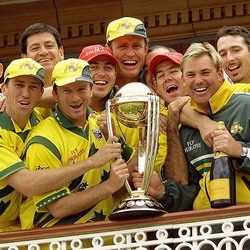
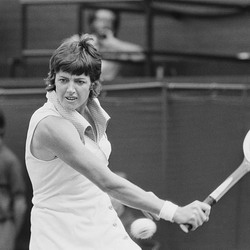
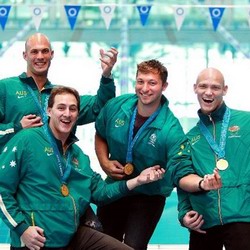
The Australian Cricket Team, World Cup champions, Margaret Court, winner of 192 singles titles, the Australian Men's 4x100m freestyle team in 2000.
Most nations love sport but no other nation is quite as obsessed with it as Australia is. In every Olympics we are in the top 10 medal winners and often finish in the top 6. This amazing when you consider that we have less than 10% of the population of leaders like the USA and China and only a third the population of the likes of Germany, the UK and France. In the past many Australians played sport on the weekend as there was little else to do, especially in country towns. The fresh air, good food and sunshine gave our sportsmen and women a natural advantage and, of course, every Australian could swim! Even today swimming sports remain a perennial fixture on the school calendar. Still, the competitive sporting instinct was always there and Australians are known to be fiercely competitive.
Australians have been successful on the world sporting stage in all sports that we play in large quantities. We have had many world leaders in tennis as it was played everywhere in the days before TV and internet. We have been the world's best cricket team numerous times in our history as that sport was also played everywhere across the nation. We have been less successful in soccer as it has not traditionally been widely played nor supported, being only the 4th football code in the country, nevertheless, despite this we achieved a top 16 standing in the 2006 World Cup. Our two top football codes are minor codes on the world stage so we do not have the international success in "football" that we would otherwise expect. The most popular code: Australian Rules, is only played in Australia and the second most popular: Rugby League, is only a minor code in the UK and NZ, both of whom prefer Rugby Union. Despite a relative lack of Rugby Union players in Australia we have nonetheless won the Rugby World Cup twice!
Australia's netball team is usually the best in the world and our hockey teams are usually in the top 4. Our cycling teams are always competitive and we have a proud record in the Tour de France as well as the Olympic Games in the discipline. Remarkably for a country with relatively little snow we also manage a respectable showing in the winter Olympics. We have had so much success on the sporting field that it has almost become expected. How did a population of 25 million manage such feats? Well originally it was that most people played sport and then the government got involved and funded the development of champions but there is also the natural Australian competitive spirit. We go hard, train hard and we don't give up! Then there is the spectative aspect: Australians really are obsessed with sport. Try asking a Melbournian about the footy and then attempt to get a word in for the next 15 minutes...
What Is An Australian?
Technically any person holding Australian citizenship is an Australian and I agree with that in principle but there are levels of Australianess and in the eyes of the world it takes more than a piece of paper for a person to be seen as a fair-dinkum Aussie.
In my eyes, to be a full Australian a person must:
- have grown up here and been steeped in our traditions - The formative years are just that: formative and it is in those years that an Australian character is formed. We have all been steeped in the traditions of footy, cricket, meat pies, BBQs, potato cakes, the beach, drinking, bullshitting, swimming, camping etc. Even if you hate the footy you at least know what it is! Without this common cultural backdrop you cannot be 100% Australian.
- speak with an Australian accent - You can try as hard as you like but without a proper Australian accent you will never be 100% accepted as one of us. One's accent is usually fixed around 14 years of age and it marks most people for life with the place they grew up. In most cases people around the world will judge you based on your accent, whether it displays your current home or not.
- exhibit most of the character attributes listed above - Ideally an Australian should embody ALL of those characteristics but since we are not a perfect people we shall have to settle for MOST. Nevertheless many Australians will embody all of them. Here they are again: toughness, self-reliance, inventiveness, artistic, a belief in equality, the willingness to give everyone a fair go, honesty, helpfulness, friendliness, rebelliousness, a great sense of humour, a love of personal freedom and a love of sport.
- call Australia home - Ultimately who you are is engraved on your heart. If you feel that this is your home and you wouldn't trade it for any other country then you are Australian. If you feel in your heart that you belong to some other country then you are NOT Australian regardless of any certificate you may hold. If you are torn between Australia and some other country and cannot make up your mind then you are half Australian.
So there it is: my definition of a true Australian. Not everyone is going to agree with it and that is fine. They can go and create their own page with their own definition. I support their right to disagree!
I love my country and its traditions and I love the Australian character. I feel it deep within me at all times and I rejoice in it. I particularly rejoice in its rebellious aspect as it is that above all that gives us the sense of real freedom. We have become vastly over-governed and mind-controlled in recent decades and it is completely against the Australia spirit to see so many of us parroting some idiot mentality simply because the government and the media tell us it is how we should think. I was happy to see protests against vaccines, even though I agree with compulsory vaccination under certain circumstances, because it showed that we are not all sheep and there are still some among us who are willing to rebel!
Aussie! Aussie! Aussie!
Long may it last!
Warren Mars - May 19, 2022